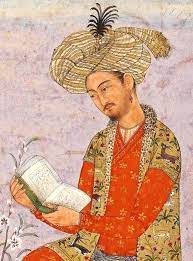Babur
Babur was a Timurid prince and a central Asian conqueror who founded the Mughal Empire in India in 1526. He was born in 1483 in the city of Andijan, which is located in present-day Uzbekistan. Babur was the eldest son of Umar Sheikh Mirza, the ruler of Fergana, a province located in present-day Uzbekistan.
Babur was an accomplished warrior and military strategist, and he demonstrated his abilities at a young age. In 1504, he conquered Samarkand, which was his ancestral home but had been captured by the Uzbek tribes. However, he was not able to hold on to the city for long, and he was forced to flee to Kabul, in present-day Afghanistan.
In Kabul, Babur built a strong power base and began to plan his conquest of India. He first attempted to invade India in 1519, but his army was defeated by the Sultan of Delhi. However, he did not give up, and he made another attempt in 1525, which was successful. In the Battle of Panipat, Babur defeated the Sultan of Delhi and established the Mughal Empire in India.
Babur was not only a skilled warrior but also a gifted poet and writer. He wrote a memoir called the Baburnama, which is considered one of the most important historical documents of the time. The book provides a detailed account of Babur's life, his conquests, and his views on various subjects.
Babur was a tolerant ruler, and he did not force his religion on the people of India. He respected the local customs and traditions, and he encouraged his people to assimilate into the local culture. He also promoted the arts, and during his reign, the Mughal Empire became known for its architecture, literature, and music.
Babur died in 1530, at the age of 47, and he was succeeded by his son Humayun. Babur is remembered as one of the most important figures in Indian history, and his legacy continues to be celebrated in India and throughout the world.

Comments
Post a Comment